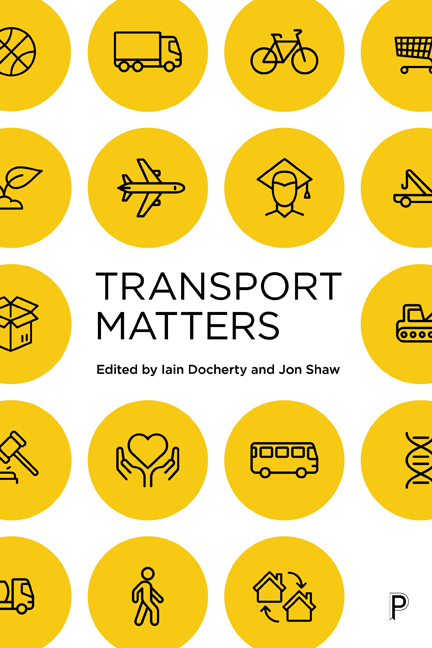11 - Public Engagement and Consultation: Decide, Announce and Defend?
Published online by Cambridge University Press: 03 March 2021
Summary
Introduction
Any volume that addresses the topic of transport policy needs to confront the issue of the citizen's role in its formulation. This is first for the somewhat hackneyed reasons that citizens will experience many, and often most, of the consequences of the policies adopted, and that they will also pay a large proportion of the costs of implementation and, where relevant, maintenance. But a more pragmatic reason is that citizens often feel frustrated by and excluded from the decisions of transport policy makers. Likewise, planners and policy makers must also at times feel a degree of frustration with publics that are diverse in their interests, views and demands and whose concerns are often not expressed in the more familiar language of transport planning and policy. The tendency to see particularly local protest as self-interested and illegitimate among the promoters of infrastructure has been identified in a whole body of literature on the issue (McAvoy 1998, Cotton and Devine-Wright 2011, McClymont and O’Hare 2008, Devine-Wright 2013). The term NIMBY (‘not in my back yard’) comes with the implication of a lack of willingness to accept individual losses in order to achieve collective benefits. Set against this, though, the ideal of a disinterested professional able to apply neutral measures to derive objectively the best course of action has also become increasingly hard to sustain in the face of a number of criticisms. For example, ‘rent seeking’ (Flyvbjerg et al 2003) behaviour, where certain groups and actors advance their own interests in providing and producing transport infrastructure ahead of the public interest, combines with tendencies towards ‘strategic misrepresentation’ (Flyvbjerg 2008), in particular the distortion of estimates of that infrastructure's costs, timescales and eventual benefits. In this chapter, we aim to look beyond the unproductive dichotomy between the illinformed and self-interested NIMBY and the shadowy technocrat. We seek to explore some of the reasons behind the latter and the contributions the former might make to decision making.
That transport policy making is a potential minefield is not in doubt. Many countries struggle to resolve the issues of siting transport infrastructure, with high-speed rail (HSR) often particularly controversial (Della Porta and Andretta 2002, Leheis 2012, Minn 2012, Novy and Peters 2012, OMEGA Centre 2013a, 2013b; Salet et al 2013, Schmidt-Thome and Mantysalo 2013).
- Type
- Chapter
- Information
- Transport Matters , pp. 251 - 278Publisher: Bristol University PressPrint publication year: 2019



